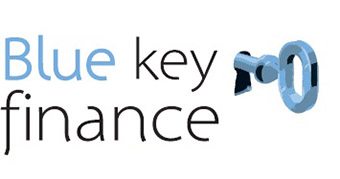Help! I’m 55 and need a home loan
At Blue Key Finance, we look after many borrowers over the age of 55, and for the past couple of years we’ve seen Banks impose tighter lending standards for this demographic. This makes our job even more rewarding when negotiating the best terms for our older client’s needs.
Banks are wary of older first-time borrowers – unless they want finance for an investment property.
We often hear older First home buyers unable to secure a home loan at their own bank but had no problem getting an investment loan. While Banks cannot specifically be ageist in a lending scenario, they do take into account the suitability of a loan to the individual, especially around their serviceability and ‘term to retirement’ age.
A client more than ever now needs to be able to establish how they will meet mortgage repayments and/or articulate an exit strategy if they are nearer to retirement. At Blue Key Finance, we are more than happy to help our clients articulate this to the Banks.
As a general rule, investment loans don’t need an exit strategy, as you can sell an investment property when you retire and it doesn’t affect your home.
Under the National Consumer Credit Protection Act, you’re considered to be in financial hardship if you can’t pay off a mortgage without selling your home. On the other hand, you can sell an investment at any time without financial hardship.
Responsible lending requirements mean lenders require borrowers over 50 years old to demonstrate how they will be able to afford their loan repayments in retirement – what is called an exit strategy. For borrowers who take out an owner-occupied home loan, selling the property is not considered by lenders as a valid exit strategy.
The typical first home buyer average age is now around 37. The decline in home loan affordability, along with lending policy changes that require larger deposits, could see exit strategies become more commonplace.
Downsizing to a smaller home when you reach retirement is one way around the issue but is not accepted by all lenders on our panel. Other exit strategies include the sale of assets such as an investment property or shares or lump sum repayments from super and or ongoing income from super. Some lenders will allow for a conservative projection using the growth of your superannuation.
You can improve your chances of getting a home loan by having a larger deposit. Being able to prove genuine savings, a stable employment history and regular financial discipline when it comes to your expenses will go a long way towards strengthening your borrowing muscle in the tightened lending landscape.
The introduction of comprehensive credit reporting also works in favour of age, as older borrowers tend to have a long credit history, so as long as you’ve paid your debts in full on time, it should increase your borrowing power.
At age 50: Most lenders will allow you to borrow but some may decline your application due to your age.
At age 55: Almost all lenders will require a written exit strategy, evidence of your superannuation and other assets that can be sold to repay the proposed debt.
At age 60: Most Banks are likely to decline your application due to your age. However, if you’ve got a continuing source of income past retirement or have assets you can sell to help repay the loan, then your loan may be approved.
At age 65/75/80: You’ll only be able to borrow money with either a senior’s equity loan (reverse mortgage) or with a standard loan if you can prove an ongoing post-retirement income.
Either way, if you’re finding it frustrating to borrow money, you know you can call us and we will research at the time the best lender options for you based on your specific circumstances.




Leave a Reply
Want to join the discussion?Feel free to contribute!